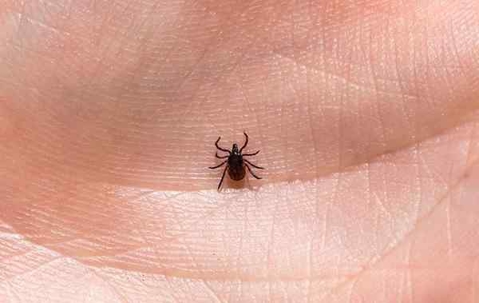Little-Known Ways To Keep Houston Ticks Away This Summer
In as little as 24 hours, these blood-sucking pests have the ability to change your health, wellness, and even entire life – all with a single bite.
Ticks are dangerous outdoor pests that create a mass of concerning health issues all across the country. A heat- and moisture-loving pest, ticks have spread from the southern United States to the Northeast and even Midwestern locations. Many different species of ticks are active here in Houston, TX, including:
American Dog Ticks
Blacklegged or Deer Ticks
Lone Star Ticks
One of the biggest reasons why ticks are so prevalent in our backyards is due to their ‘questing’ behavior. Ticks move from host to host by frequenting certain ‘hotspot’ areas where they believe they can find a decent meal. Ticks will climb out to the ends of grasses, tree branches, and other vegetation near a well-traveled path or by wildlife activity. By waving their arms, the ticks will eventually ‘catch their prey.’ Ticks will feed on a host from 2-48 hours on average, swelling up to huge sizes. Once they have had their fill, the tick drops off the host and begins hunting for their next victim.
This ‘questing’ behavior and hitchhiking capability makes ticks a constant threat, especially during the warmer months. Since they attach to local wildlife such as deer, raccoons, and even rats, wild animals may quickly introduce tick activity into your backyard. The health concerns ticks cause in victims are both serious and diverse in nature. Some of the common diseases are:
Lyme Disease
Rocky Mountain Spotted Fever
Ehrlichiosis
Spotted Fever
Tick Paralysis
Powassan encephalitis
Unfortunately, tick activity and their related illnesses affect more than just human beings. Our beloved pets are highly susceptible to infection. Their long fur and fast-moving bodies make catching embedded ticks very difficult, raising their chances (and yours) for bites and the spread of diseases.
Making The Yard Less Attractive To Ticks & Their Wildlife Hosts
Enjoying your lawn does not need to be a balancing act between fear and healthy concern. Instead, note the following points that make your yard less attractive to both ticks and their wildlife hosts:
Trim back trees, shrubs and other vegetation that could be attracting wildlife to the home. This includes mowing the lawn (maintaining short grass). Reducing birdseed and suet hangers may also help to keep potential tick-carrying animals out of the yard.
Remove leaf litter or leaf piles from around the home, taking care to dispose of them promptly before the start of the summer season.
If a wooded area is anywhere within your property, consider building a gravel or peat stone boundary barrier to prevent ticks from scouting too close to home.
Concerned that tick activity is already present around your yard, regardless of previous preparations? The best course of action for your family will be to schedule a free lawn inspection with a Modern Pest Control professional immediately.
Find Modern Solutions With Modern Pest Control
Dissuading tick populations from settling in your yard may be a difficult task, especially in the more rural areas of Houston. If you are concerned that pest activity in your backyard is posing a risk to your family, contact the professionals at Modern Pest Control today and get started on a pest protection plan with seasonal tick treatments.
Want more tips and tricks for keeping your lawn pest-free? Reach out to our friendly professionals by calling your nearest Modern Pest Control branch or chat with us online using the contact box below. Let’s solve your modern pest problems with Modern Pest Control today.

